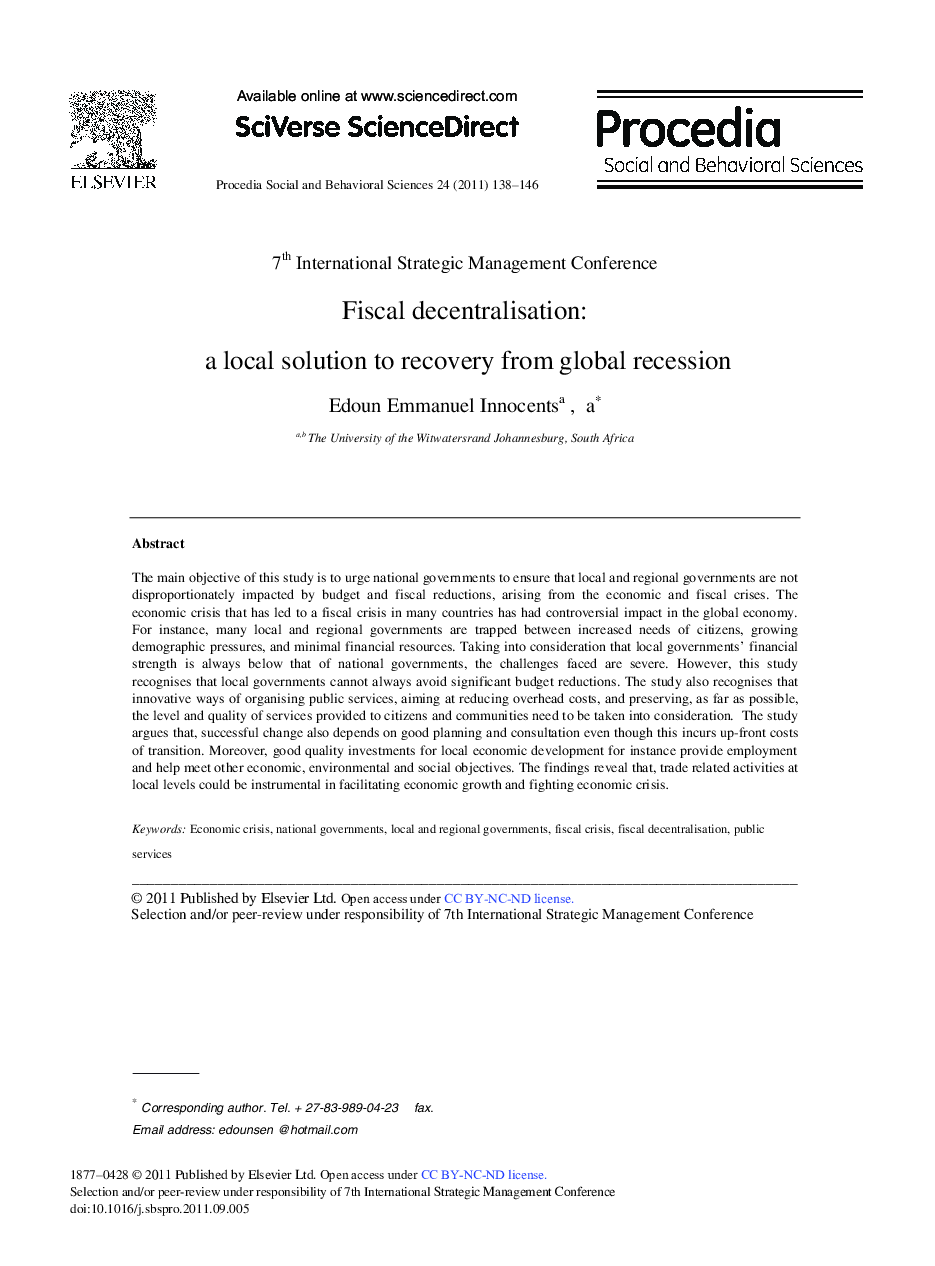| Article ID | Journal | Published Year | Pages | File Type |
|---|---|---|---|---|
| 1123492 | Procedia - Social and Behavioral Sciences | 2011 | 9 Pages |
The main objective of this study is to urge national governments to ensure that local and regional governments are not disproportionately impacted by budget and fiscal reductions, arising from the economic and fiscal crises. The economic crisis that has led to a fiscal crisis in many countries has had controversial impact in the global economy. For instance, many local and regional governments are trapped between increased needs of citizens, growing demographic pressures, and minimal financial resources. Taking into consideration that local governments’ financial strength is always below that of national governments, the challenges faced are severe. However, this study recognises that local governments cannot always avoid significant budget reductions. The study also recognises that innovative ways of organising public services, aiming at reducing overhead costs, and preserving, as far as possible, the level and quality of services provided to citizens and communities need to be taken into consideration. The study argues that, successful change also depends on good planning and consultation even though this incurs up-front costs of transition. Moreover, good quality investments for local economic development for instance provide employment and help meet other economic, environmental and social objectives. The findings reveal that, trade related activities at local levels could be instrumental in facilitating economic growth and fighting economic crisis.
